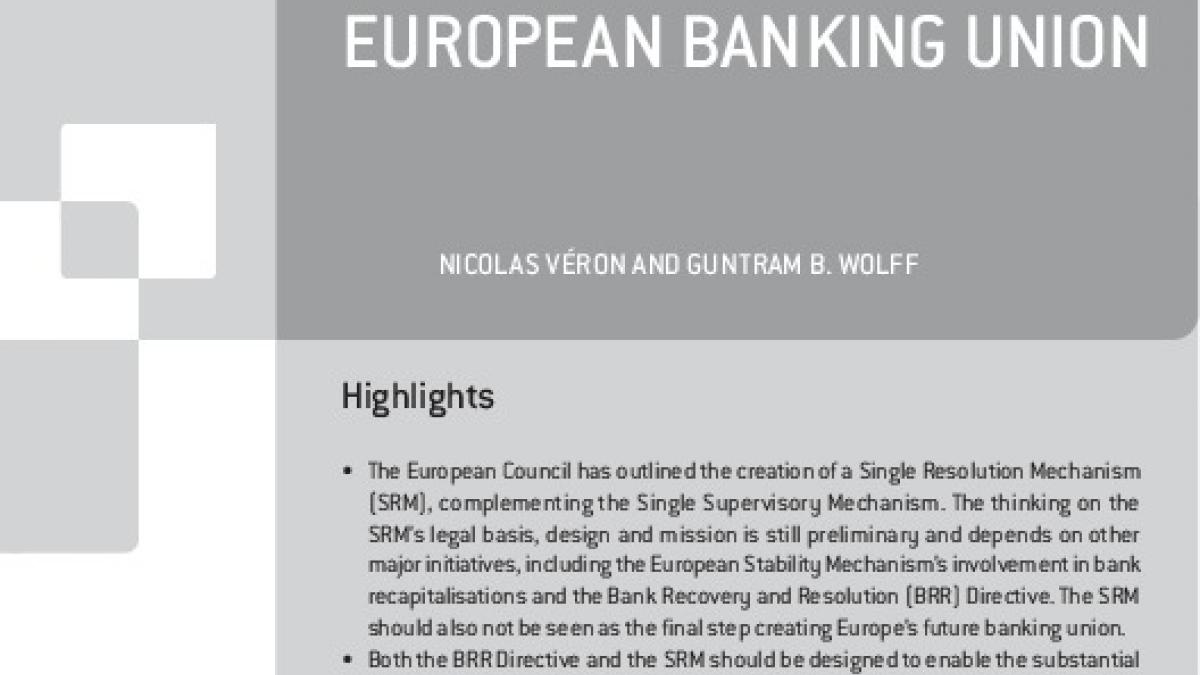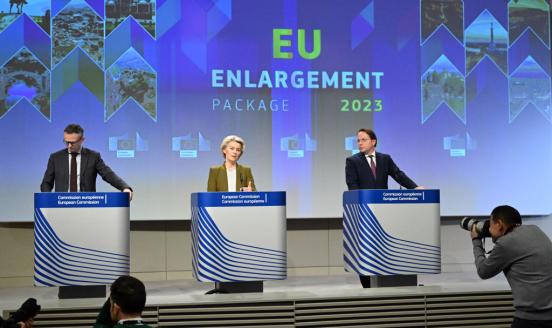From supervision to resolution: next steps on the road to European banking union
Policy note in anticipation of hearing of Mario Draghi at the Economic and Monetary Affairs (ECON) Committee: The European Council has outlined the cr

Listen to the press conference call.
The European Council has outlined the creation of a Single Resolution Mechanism (SRM), complementing the Single Supervisory Mechanism. The thinking on the SRM’s legal basis, design and mission is still preliminary and depends on other major initiatives, including the European Stability Mechanism’s involvement in bank recapitalisations and the Bank Recovery and Resolution (BRR) Directive. The SRM should also not be seen as the final step creating Europe’s future banking union.
Both the BRR Directive and the SRM should be designed to enable the substantial financial participation of existing creditors in future bank restructurings. To be effective, the SRM should empower a central body. However, in the absence of Treaty change and of further fiscal integration, SRM decisions will need to be implemented through national resolution regimes. The central body of the SRM should be either the European Commission, or a new authority.
This legislative effort should not be taken as an excuse to delay decisive action on the management and resolution of the current European banking fragility, which imposes a major drag on Europe’s growth and employment.



